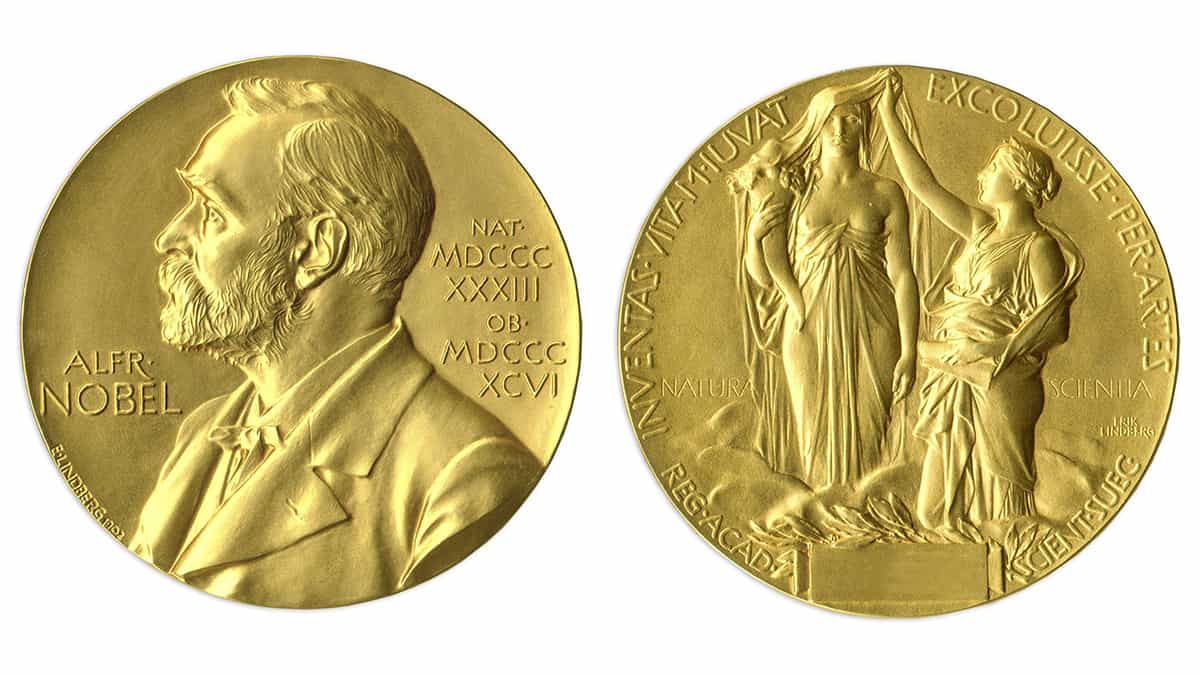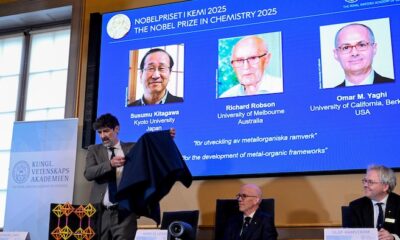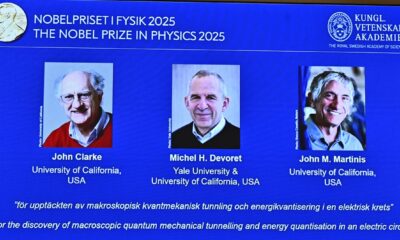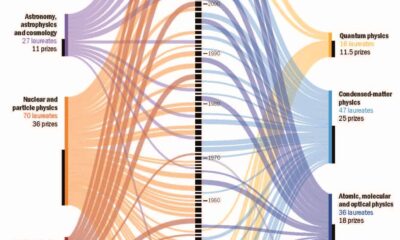Science
John Clarke, Michel Devoret, and John Martinis Win Physics Nobel

John Clarke, Michel Devoret, and John Martinis have been awarded the 2025 Nobel Prize for Physics for their groundbreaking work in quantum mechanics. The trio received the accolade for their “discovery of macroscopic quantum mechanical tunnelling and energy quantization in an electric circuit.” Each laureate will share an equal portion of the SEK 11 million (approximately $1.2 million) prize, which will be presented during a ceremony on December 10, 2025, in Stockholm.
The announcement was made this morning by members of the Royal Swedish Academy of Sciences. Olle Eriksson, chair of the Nobel Committee for Physics and a professor at Uppsala University, emphasized the significance of quantum mechanics in today’s technology, stating, “There is no advanced technology today that does not rely on quantum mechanics.”
Transforming Quantum Mechanics into Practical Technology
According to Göran Johansson from Chalmers University of Technology, the work of the three laureates has effectively transitioned the concept of quantum tunnelling from the microscopic realm to superconducting chips. This advancement has enabled physicists to explore quantum physics in unprecedented ways, ultimately paving the way for the development of quantum computers.
John Clarke expressed his astonishment upon receiving the news of the award, remarking in a telephone interview, “To put it mildly, it was the surprise of my life.” He added that he was “completely stunned” that his research has led to such a prestigious recognition.
Future Implications of Their Research
The research conducted by Clarke, Devoret, and Martinis not only enhances our understanding of quantum mechanics but also holds the potential to revolutionize computing technology. Quantum computers, which leverage the principles of quantum mechanics, promise to tackle complex problems much faster than current classical computers. The implications for industries ranging from cryptography to drug discovery could be profound.
The Nobel Prize in Physics is among the most esteemed recognitions in the scientific community, highlighting contributions that significantly impact our understanding of the universe. As the world awaits the formal presentation of the award, the achievements of these three physicists will continue to resonate within the scientific community and beyond.
Further details regarding the ceremony and the implications of their work will be available as the date approaches.
-

 World2 weeks ago
World2 weeks agoCoronation Street’s Shocking Murder Twist Reveals Family Secrets
-

 Entertainment1 week ago
Entertainment1 week agoAndrew Pierce Confirms Departure from ITV’s Good Morning Britain
-

 Entertainment5 months ago
Entertainment5 months agoKate Garraway Sells £2 Million Home Amid Financial Struggles
-

 Entertainment4 months ago
Entertainment4 months agoAnn Ming Reflects on ITV’s ‘I Fought the Law’ Drama
-

 Entertainment1 month ago
Entertainment1 month agoCoronation Street Fans React as Todd Faces Heartbreaking Choice
-

 Health4 months ago
Health4 months agoKatie Price Faces New Health Concerns After Cancer Symptoms Resurface
-

 World1 month ago
World1 month agoBailey Announces Heartbreaking Split from Rebecca After Reunion
-

 Entertainment2 weeks ago
Entertainment2 weeks agoTwo Stars Evicted from I’m A Celebrity Just Days Before Finale
-

 World2 weeks ago
World2 weeks agoKevin Sinfield Exceeds Fundraising Goal Ahead of Final Marathons
-

 Entertainment4 months ago
Entertainment4 months agoCoronation Street’s Carl Webster Faces Trouble with New Affairs
-

 Entertainment4 months ago
Entertainment4 months agoWhere is Tinder Swindler Simon Leviev? Latest Updates Revealed
-

 Entertainment5 months ago
Entertainment5 months agoMarkiplier Addresses AI Controversy During Livestream Response





















